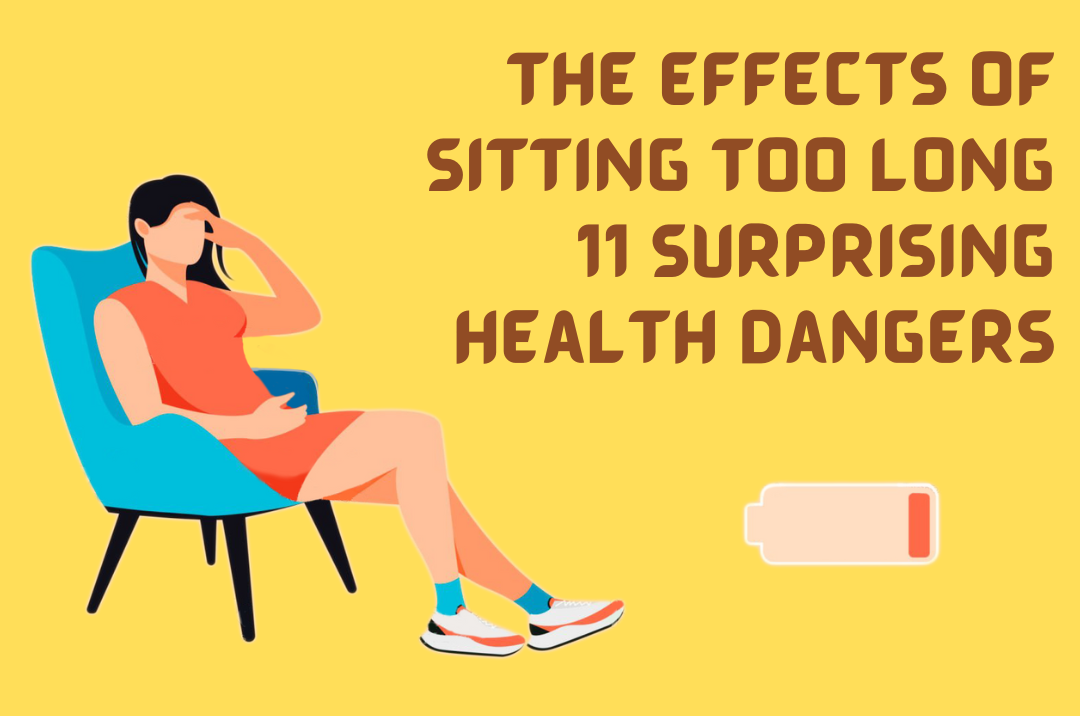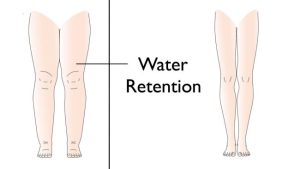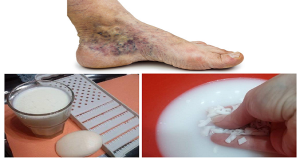Are you struggling to lose weight and maintain a healthy diet? You may have a toxic fatty acid that blocks weight loss.
Here's how a simple “Ice Hack” speed up my fat loss and helped me restore my health, watch now.

Sitting is often seen as a relaxing activity, but research shows that sitting for extended periods can have serious consequences for your health. Prolonged sitting causes your muscles to be inactive, which can result in a decrease in muscle mass and an increase in body fat.
Therefore, if you spend a lot of time sitting, it’s important to take breaks and move around frequently. Even just standing up and stretching or walking around for a few minutes every hour can make a significant difference. Remember, sitting may feel comfortable in the short term, but it can have serious long-term consequences for your health.
Here are 11 surprising health dangers of sitting too long:
- Obesity: According to a study published by the American Journal of Preventive Medicine, people who spend more than four hours a day sitting are more likely to be obese than those who spend less than two hours a day sitting.
- Heart disease: Sitting too much can increase your risk of heart disease. A study published in the British Journal of Sports Medicine reports that sitting for prolonged periods is associated with a higher risk of heart disease and other cardiovascular problems.
- Diabetes: Prolonged sitting can lead to insulin resistance, a condition in which your body cannot use insulin effectively. The International Journal of Behavioral Nutrition and Physical Activity published a study that found that prolonged sitting is associated with an increased risk of developing Type 2 diabetes.
- Cancer: Sedentary behavior has been linked to an increased risk of cancer. Studies have found that sitting for prolonged periods can increase the risk of colon, breast, and endometrial cancers.
- Back pain: Sitting can cause back pain, particularly if you sit in an improper posture or use a chair without proper back support.
- Stress: Sitting for long periods can increase stress levels. When you sit for an extended period, your body releases cortisol, a hormone associated with stress.
- Anxiety: According to a study published in Mental Health and Physical Activity, sitting for more than four hours a day is linked to increased symptoms of anxiety.
- Depression: Sitting for prolonged periods can increase the risk of depression, particularly among women. A study published in the American Journal of Preventive Medicine found that women who sit for more than seven hours a day are more likely to suffer from depression than those who sit for four hours or less.
- Poor circulation: Sitting for too long can lead to poor circulation, which can cause swollen ankles, varicose veins, and deep vein thrombosis (DVT), a blood clot that forms deep within a vein.
- Muscle degeneration: Prolonged sitting can lead to muscle degeneration, particularly in the muscles of the lower body.
- Shortened life expectancy: A study published in the American Journal of Epidemiology found that sitting for prolonged periods is associated with a higher risk of premature death. The study found that individuals who sit for more than six hours a day have a higher risk of premature death than those who sit for less than three hours a day.
How to Reduce the Health Dangers of Sitting Too Long
Keeping your body moving can help reduce your risk of the health dangers associated with prolonged sitting. Here are some tips to get you moving throughout the day:
- Stand up and stretch for a few minutes every hour.
- Take frequent breaks and walk around, even if it’s just for a few minutes.
- Invest in a standing desk or a desk which can be converted into a standing desk.
- Exercise regularly, even if it’s just for a short period.
- Use a fitness tracker to monitor your daily activity levels.
- Choose to walk or bike instead of driving or using public transportation.
Conclusion
Overall, sitting for prolonged periods carries many serious health dangers, including obesity, heart disease, diabetes, cancer, back pain, stress, anxiety, depression, poor circulation, muscle degeneration, and shortened life expectancy. By keeping your body moving and active, even just a little bit, throughout the day, you can reduce your risk and stay healthy.










